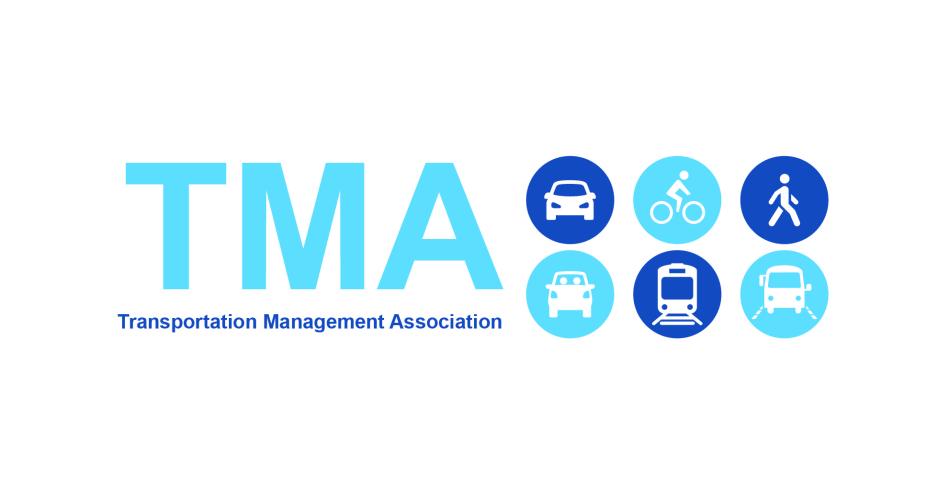Implement transportation management associations (TMAs), which are private, non-profit, member-controlled organizations that provide access to, information on, and facilitate commuter transportation services in a given area. TMA’s represent a variety of community interests and help obtain transportation demand management goals through advocacy work, consulting, event organization, training, and reduction programs.
Advantages include:
- Represents local businesses such as commercial districts, malls, medical centers, industrial parks, or other locations with parking demand issues.
- Provides a variety of services that encourage the efficient use of transportation and parking resources.
- Enables employers to provide commute trip reduction programs to employees that will give commuters resources and incentives to reduce their automobile trips.
- Provides brokerage services allowing businesses to share, trade, lease, rent, or sell vehicle parking facilities to maximize supply.
- Generates trust and collective action at the local level.
Body
